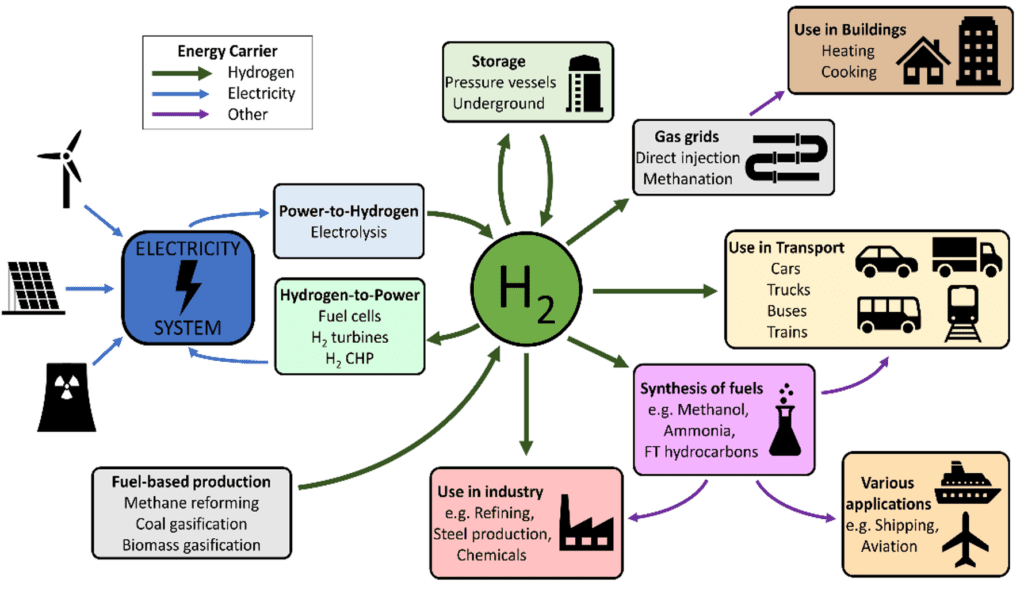Hydrogen has a crucial role to play in the transition to net-zero, complementing and supporting higher penetrations of renewable electricity by providing load balancing, energy storage and sector coupling. Many hydrogen technologies are ready for deployment, but a challenge is establishing robust value chains to create and support strong and reliable supply of and demand for hydrogen. Value chains are networks of processes or activities required to obtain raw materials and/or primary resources and convert them into useful products and services, along with logistics such as distribution, storage and inventory management. The Value Web Model (VWM) is a large mixed-integer optimisation model that can determine the best combinations of the many interdependent decisions regarding the planning, design, and operation of the value chains. This research uses the VWM to determine the roles of hydrogen technologies, such as power-to-gas and hydrogen injection into gas grids, gas linepack, CCUS, underground storage (e.g. salt caverns, depleted oil and gas fields) etc. in achieving net-zero. It focuses on how value chain optimisation can be used to analyse energy policy scenarios, and outlines on-going work on designing hydrogen value chains for energy-intensive industries (e.g. steel), aviation and shipping.
Whole-system optimisation for planning, design and operation of hydrogen value chains for net zero
-
Department of Chemical Engineering
-
University of Bath

About this research
Related publication(s)
Samsatli, S & Samsatli, NJ (2018). A multi-objective MILP model for the design and operation of future integrated multi-vector energy networks capturing detailed spatio-temporal dependencies. Applied Energy, vol. 220, pp. 893-920. DOI: 10.1016/j.apenergy.2017.09.055.
Samsatli, S & Samsatli, NJ (2019). The role of renewable hydrogen and inter-seasonal storage in decarbonising heat – comprehensive optimisation of future renewable energy value chains. DOI: 10.1016/j.apenergy.2018.09.159.
Quarton, C & Samsatli, S (2020). Should we inject hydrogen into gas grids? Practicalities and whole-system value chain optimisation. Applied Energy, vol. 275, 115172. DOI: 10.1016/j.apenergy.2020.115172.
Quarton, C & Samsatli, S* (2021). How to incentivise hydrogen energy technologies for net zero: Whole-system value chain optimisation of policy scenarios. Sustainable Production and Consumption, 27, 1215-1238. DOI: 10.1016/j.spc.2021.02.007
Acknowledgements
The funding from the Department for Business, Energy and Industrial Strategy (BEIS) and Engineering and Physical Sciences Research Council (Grant No. EP/P018165/1) is gratefully acknowledged.
Lead author
Affiliation:

Co-author(s)
Chris Quarton, Department for Business, Energy and Industrial Strategy (BEIS)
Nouri Samsatli, Siemens Process Systems Engineering Ltd.
Browse research pitches with the same research area or keyword
Comments
Responses
You must be logged in to post a comment.


Hi Sheila would be interesting to apply this t Mexico country level!
Thanks Elias, I’m looking forward to doing that!
Nice pitch!
Thanks